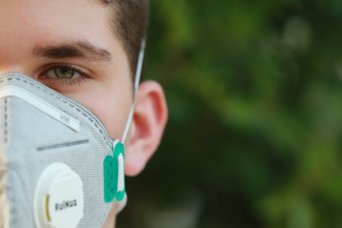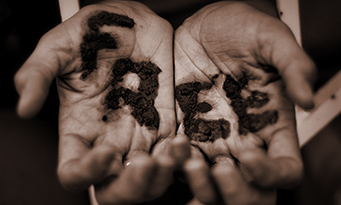- About
- Topics
- Picks
- Audio
- Story
- In-Depth
- Opinion
- News
- Donate
-
Signup for our newsletterOur Editors' Best Picks.Send
Read, Debate: Engage.
| topic: | Health and Sanitation |
|---|---|
| located: | Brazil |
| editor: | Ellen Nemitz |
Since the outbreak of COVID-19 hit Brazil, the number of confirmed cases has been daily increasing: March ends with more than four thousand positive tests and hundreds of deaths - numbers that are, similar to other countries, rising geometrically.
Biologist Atila Iamarino, a specialist in microbiology with vast research on viruses such as HIV, Ebola and Zika, alerted that Brazil has a worrying potential risk factor: the slums, or favelas, where coronavirus has already arrived. These poor communities all over the country have characteristics that impede its residents from following rules of prevention: isolation at home and hand washing.
According to the local newspaper Folha de São Paulo, 11.5 million people live in houses with more than three people per room and 31 million do not have proper water service – not to mention the vulnerability that forces people out to work and seek for food. Thus, Brazil can expect a worsening situation and the Health Minister Luiz Henrique Mandetta estimates that the Brazilian health system could, in turn, collapse by the end of April.
Among strong measures taken by governors and mayors to flatten the curve – with positive effects in São Paulo, for example – President Jair Bolsonaro continues to walk in the opposite direction. The government launched an official campaign called “Brazil cannot stop”, which was later banned by the Justice while the president repeatedly defends a “normal life” for those out of risk groups, calling COVID-19 a “little flu”.
In his evaluation, some lives lost are nothing compared to economic collapse. Politicians, ministers of Supreme Court and several civil society organisations such as the Brazilian Society of Infectious Diseases repudiated his position.
Bolsonaro and his entourage also fail to make wealth distribution to maintain subsistence while millions see their income waning. More than 38 million people are informal workers and 99 per cent of companies are small or medium. At the start of the spread, the proposal announced by the Economy Minister Paulo Guedes, a liberal economist, was to give a stipend of approximately 40 dollars per month to informal workers or the unemployed, as well as potentially allowing companies to interrupt contracts and salaries for up to four months. Congress ultimately approved a stipend of 120 dollars for low-income workers and 240 dollars for mothers who lead families alone. After being criticized, the government announced 8 billion dollars of credit with low-interest rates for companies to pay salaries.
The currently pandemic we are all living through is being pointed as a divisive moment for humanity. People will no longer live as before and the economy will change. The same is happening in Brazil. With Bolsonaro losing his support base (a poll from Datafolha showed that only 56 per cent of his electors approve the way he is leading the crisis), Brazilians can now count on different leaders, such as the governors who are maintaining isolation decrees and the Health Minister, who is keeping his position in order to stop the virus spreading.
Being in favour of or against shutdown is no longer an option, it is essential to save lives. And the economy must return, after this, "more sustainable, inclusive and equitable”, as stated UN Secretary-General António Guterres.
Image by Orna Wachman

